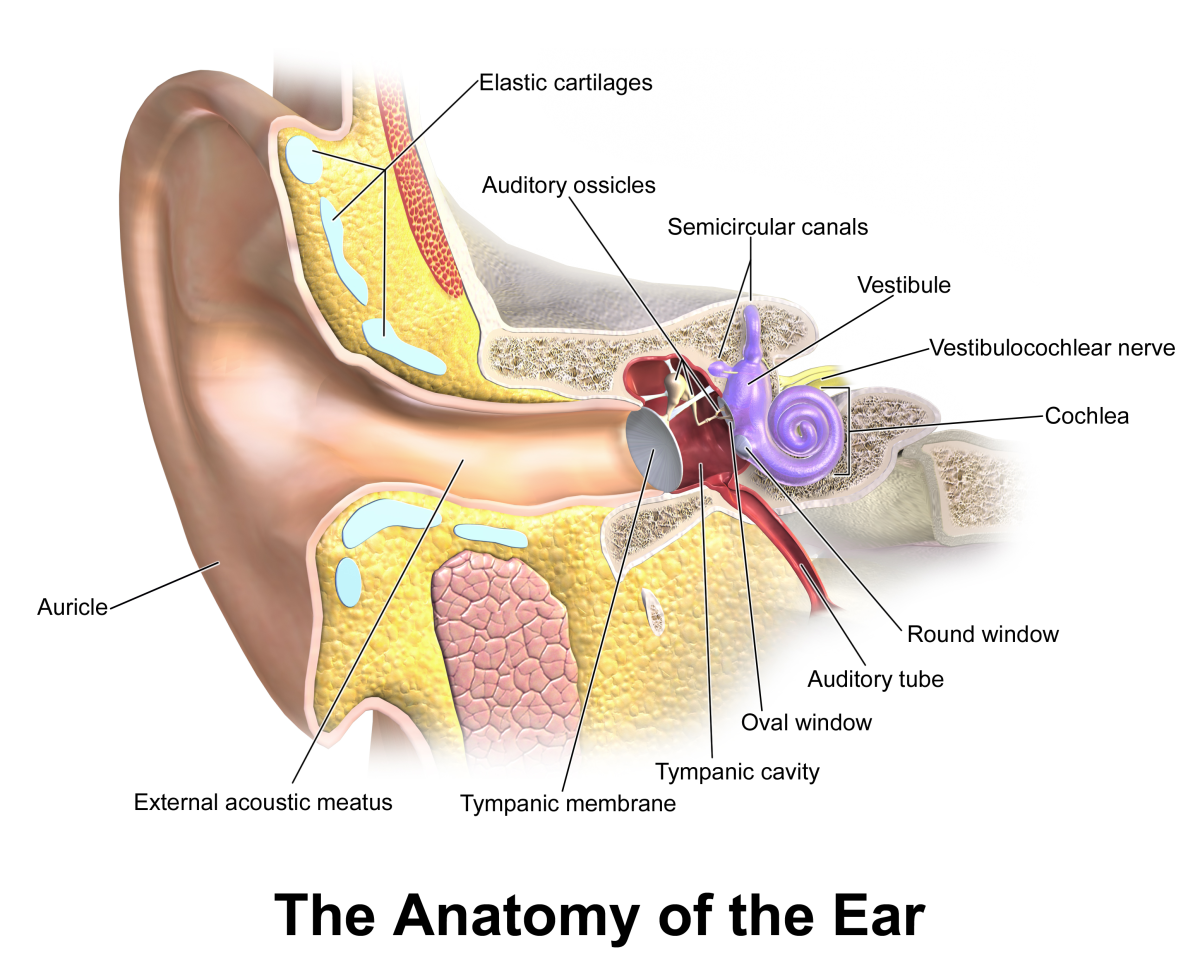Learn How to Lucid Dream

Lucid Dreaming for Beginners
"Nothing in life is to be feared, it is only to be understood. Now is the time to understand more, so that we may fear less." ~ Marie Curie
From fear comes a lot of notions, feelings, or reactions. For the 12 year old me, from fear came the greatest discovery, the greatest wealth of inner knowledge that has guided, soothed, and cushioned the rough patches in my life. Like Marie Curie, I was quite the scientifically minded little gal. That left little room for flights of fancy or the ability to accept any given element of my life as-is. So when I began to suffer from reoccurring nightmares in my 12th year circling around the sun, I was determined to find a way to make them stop.
What is Lucid Dreaming? - The definition versus the goal
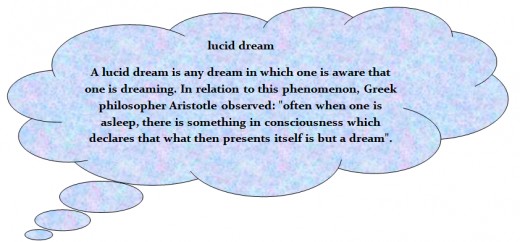
Lucidity in the dream state is not uncommon, rare or an exceptional event in any way. Most everyone who has ever dreamed a dream can attest to the fact that at some point, they realized they were dreaming. This doesn't mean the dream wasn't still terrifying. This doesn't mean you didn't believe your dream was reality for a moment or many. This simply means that control or not, you knew it was a false reality. Many times, you'll hear a dreamer share that it was so terrible, they had to wake themselves up. While the actual definition of a lucid dream is exactly what Aristotle observed, in this day and age, when someone uses the phrase "Lucid Dreaming" they are actually describing the action of controlling, altering or ending a dream. So even though you may think lucid dreaming is impossible or improbable, if you have ever awakened from a dream state because it was a terrible dream, or a tedious one, you have in a remote way, already committed the actual act of lucid dreaming, a slight step beyond it's simple definition.
Why Would Anyone Want to Lucid Dream? - And how difficult is it?

Over the years I have certainly heard a laundry list of reasons on why any individual may want to learn to lucid dream. Whatever your reason, it is important to understand that the time it takes to learn this skill can vary greatly from person-to-person. If you really intend to learn how to lucid dream, you should first prepare yourself to be incredibly patient. This is not a skill you can 'hurry up and learn'. In fact, learning how to tweak the subconscious, dream-state mind can be nearly impossible if you pressure yourself to learn. The process actually takes ritually repeated tasks, dream logging and brain training in it's most basic form. You're simply going to teach your brain to recognize when you are in a dream. But we get ahead of ourselves. Just like Curie, I believe it is critical to learn all of the details before holding myself to task, so the best place to start of course, is with some basics.
A Brief History on Lucid Dreaming
As you should have learned from that brief history is that lucid dreaming has progressed from being considered simple 'absurd', to an issue that was researched and studied heavily in the 1970's and 1980's to even more recent and thoroughly impressive sciences behind this phenomenon.
Don't let the definition of lucid dreaming cloud your idea of what it means to drive, control or alter events while in a dream state. Let me show you what I mean.
Why I Wanted to Lucid Dream
And why that matters
The reason I wanted to learn was largely in part due to the fact that I was one of those studied and researched in the early 80's. Having found myself with a combination of sleep disturbances including recurring nightmares, sleep delayed insomnia and bruxism, my parents subjected me to a series of what was then referred to as "Sleep Disturbed EEG's". The doctors who performed the test found that even during my deepest sleep my brain reflected mostly Delta waves.
Before We Get Started
Before we get into how to learn to lucid dream, let's discuss what you will need.
You will need a sleep/dream journal. Yes, you're going to need to have a physical journal. And a pencil or pen. You can't use your phone, or your tablet, or your desktop. It is vitally important that you are doing two things here. The most important one is the process of actually writing down, committing to subconscious memory, the details of your dreams. Because writing in a physical journal exercises more senses, I'm afraid the primitive method of recording is required. The second part is the ritual, repetitiveness I described previously, and part of that ritual IS the actual task of writing what you've experienced into that physical journal.
You will also get to take advantage of internet brain training tools. My poor unfortunate generation was limited to Simon Says, or the game of Perfection for training our brains. Here are a few sites you should get in the habit of using for a half hour, at least once per day. Preferably before bed if playing them doesn't get you too amped up before bed. If so, playing them any time of day is fine.
- Luminosity
Fun brain games for adults. - Fit Brains
More adult brain training. - NatGeo Brain Games
NatGeo brain games. - Games for the Brain
Great selection of brain training games. - Fun Brain
Brain training for youths.

How to Control Your Dreams
While scientists have been able to induce a notable increase in lucid dreaming from electrical stimulation , you probably shouldn't start out that way. Let's begin with the easy, manual, self-driven way to induce them first. I will cover later several very helpful new innovations that can help with not only lucid dreaming, but to help gain a more natural, stress-free sleep.
Your entire self-training will consist of a rinse and repeat process that will begin the first morning you wake up with actively learning lucid dreaming in mind. The moment you arise, grab that dream journal and jot down any and all things you can remember from the previous night's dream. Didn't dream? That's fine. Write down your first thought. Just scrawling coffee across the paper is acceptable. You are trying to train your brain to recognize patterns in all manners. Did dream? Write down EVERYTHING. Write down that weird purple hedge you viewed, write down all colors you remember, write down the funky jacket that one dream character was wearing. Try to put things into context when and where possible, but never leave out a remembered detail because you don't think it's important. Every single detail is. And speaking of patterns, this is how we begin. And this is where your list of daily requirements come in.
Time required: 2 weeks to 6 months
Difficulty: medium
Cost: 0.00
Materials:
- Dream Journal
Tools:
- Pen
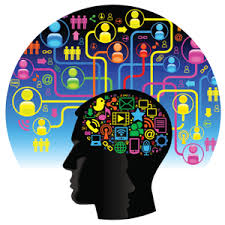
Instructions:
1. Train Your Brain – There’s no way around this. Give it 30 minutes per day on your favorite brain games site. No brain games sites you like? Read for 30 minutes per day. If at all possible, read or play the games shortly before you take your leave for bed.

2. Read the last 3 nights of sleep/dream journal entries. Just glance them over, no need to hard focus or study. The sleepier you are when perusing them, the better. Before you drift off to sleep, fantasize about the dream you would like to have. It doesn’t matter what it is. You can drive a terrific sports car, or you can be rich and famous, or you can just fantasize about standing atop a mountain taking in a beautiful panorama.

3. Record any and all details upon waking. Rinse, repeat. Again and again. Everything notable is important. Colors, objects, sensations. The point here is to train your brain by recognizing common dream occurrences. For instance, a person who has dreams of flying (and many do) will be training their brain through pattern and word association recognition.
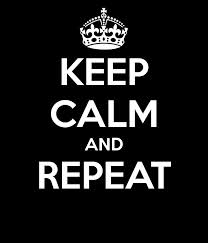
4. Plan to follow these instructions until you experience your first lucid dream, even if it is only a partial one, or one where you realize you have gained control in a sleep state. How will you know? You’ll feel similar elation to the feeling you would get going down that first big plunge on any roller coaster worth its merit. You’ll know when you turn the terror of a free fall into a fully controlled flying experience, complete with the dips and zero gravity feelings one would expect to experience if they were a flying human being. Once you have experienced the moment where a seemingly wake brain is controlling an obvious sleep brain, you’re ready to go to the next level of lucid dreaming techniques and training.
True Brain Sciences
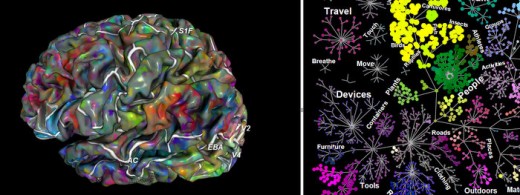
Although I may have some skepticism about some elements of the field of Psychology, that is solely due to the fact that the intricacies of the brain (much like the far reaches of outer space) is a realm of scientific study that is still in its infancy of exploration. However, that in no way downplays the great leaps and bounds that represent actual brain sciences and not just profiled guesswork. Functional magnetic resonance imaging or 'fMRI' studies have given us incredible insight into which centers of the brain are triggered by which stimuli. Unlike psychological therapies that go more by the theory of past behavior influencing future behaviors, fMRI's give us the opportunity to see the exact where's, why's and triggers of many psychological issues. So how does fMRI work and why am I explaining this in relation to lucid dreaming?
How fMRI's Work in 21 Seconds
Learn how fMRI's work in 21 seconds
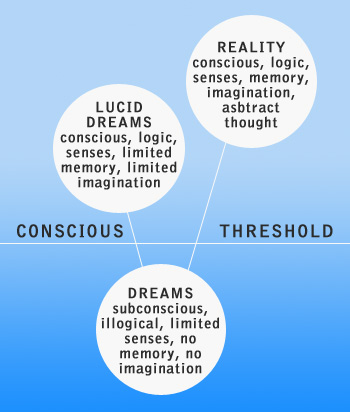
Understanding How Your Brain Works
Will Help You Lucid Dream
Just understanding the fundamentals can help, but reading any and all information available is encouraged. However, I do discourage any instances of woo or shady sales tactics. You do not need a specific book for dream journaling, writing it on scrap paper is just as effective, as long as you have organization. You also do not need any type of supplements designed to help you lucid dream. You only need the power of your brain. In following the instructions here, what you are trying to achieve is fairly simple.
As you wake up from a dream, writing down any and all details from your dream brings these items, emotions, colors and other details more into focus. The moment you write them down they are turned into impressions you are making on your own brain. These impressions, once written down, are not going to be as quickly forgotten by your thinking machine as is common with most dream material. Ask someone who has been awake 1 minute what their dream was about and they can recite endless details and occurrences. Ask them 15 minutes later once the morning fog has been shaken off and you will likely just get some rambling about how the memories seem to have disappeared already. That is why it is ultra important to make sure writing down your dream details occurs within the first 3 minutes of waking.
You are working towards the same brain training, pattern recognition end when you browse through your past dream material before you go to bed at night. And when at all possible, I really mean before you go to sleep. Make it the second to last thing you do every night, just before turning off the lights. Once again you are planting these objects, colors, words, details, instances, occurrences and other dream details into the more conscious side of your mind.
There is a fine line called a conscious threshold between dreams and lucid dreams. As you continually train your brain with the repetitive tasks, your brain is creating triggers for you. Triggers that will alert a waking or sleeping mind to 'pay attention' once it recognizes a familiar pattern. You are creating the chance for alert awareness, within a dream state, for every one of those details you write down, review and think upon more often than you ever would if you weren't trying to lucid dream. The result of this process will be that you will find yourself in a dream, aware that it is a dream, but also aware that you can now navigate it, not much different than any fun adventure game ever created.
The moment I first experienced full lucidity and understood I had control of my dream was an incredibly exhilarating moment that certainly didn't relegate itself to the dreamworld alone. The moment I realized that my flight, my dream characters, my greatest possible fantasies were mine to experience as I pleased, I literally had the same feeling one gets on that first long dip down any good roller coaster worth its merit. I felt my stomach in my throat the first time I ever flew 'under my own power' in a dream. Just as I likely would were I to walk outside, jump off my back porch, and swoop into the sky for the first time.

How Lucid Dreaming Saved Me
Even from myself
While reoccurring nightmares suffered after long periods of insomnia lead me to attempt lucid dreaming, I soon found out that there were many more benefits to it than I thought. Looking back, nearly 40 years later, I feel like without this gift of escape, I would have never made it to nearly 40 years later. Over those years, Lucid Dreaming has played a part in helping me cope with:
Migraine headaches - From 12 to around 18 I suffered from debilitating migraine headaches. While I am still not sure exactly which process caused the improvement, somewhere between learning to pull off that first lucid dream, and years later where I could conjure them up at will by simply desiring them, the headaches became fewer, less painful and then they were gone. It was actually years later that I noticed this by reading old journals of mine where I noted several times that I never got headaches on days when I did brain training exercises (back then we had Simon Says, or Perfection). And I only did brain training exercises on the days I wanted to lucid dream. Still, correlation is not causation but by the time I learned to draw up dreams at will, I never suffered one again.
Manic Depression/Bi-Polar Disorder - Back in the 80's, bi-polar disorder was referred to as manic-depression. As adults have difficulty coping with this mental illness, it can be twice as difficult for brains that are still growing, forming and navigating through the basics of emotion and human survival. I learned to grit my teeth through rough days because I had lucid dreaming to look forward to each night I wanted it. Each night I needed the abject freedom angsty teenagers desire and I took that freedom in the flying dreams. Those little setbacks mentally healthy teenagers can grind through can sometimes become world ending nightmares for those who struggle with depression. I learned to create my own paradise. my own euphoria and while I certainly experimented with my fair share of drugs as a youth, I never became addicted. I never needed anything so bad that it couldn't wait for bedtime when I could have what I wanted with absolutely no repercussions. I relied on a variety of anti-depressants for manic depression from around age 12 to age 17. By 17, I had begun to perfect my lucid dreaming skills, and I never once went back to those meds that always had side effects worse than my illness.
Grief - My group of friends seemed to suffer from an unusual number of deaths. By the time I was 20 years old I had probably attended ten funerals. Two of those deaths were devastatingly close friends. For the first time in years, the night of my best friends death, I had a dream that was beyond my control. In the dream the friend who had been dead only hours appeared to me. No big important dream. No talking. He was just there, he just smiled and he was gone. When I woke I was annoyed that I had lost control of my dreams again. I don't believe in miracles, I don't subscribe to any religion and as I mentioned before, I don't believe a personal experience to be standard experience by any means. What I was sure of is that the amazing brain, the scumbag brain, the thinking brain, had given me another gift. It showed to me that while my friends might be gone, they are here, in the mind. If you are feeling down and missing your lost loved ones, there's not much like conjuring them up in a lucid dream and taking a magic carpet ride over your old stomping grounds. Even in silence, those dreams will remind you that those you have loved and lost, seriously do live in your heart and mind. You can bring them back whenever you like. This isn't a replacement for grief counseling if you are struggling with a loss, but once you have come to terms with life as it is now, you will have a hard time not smiling to yourself when you make a new cherished memory where you never thought there'd be more.
Parenting - Kids. Sheesh! Right? We love them endlessly and unconditionally, but there are days, nights, then the next day, then the next night, where we just do not get the rest we need. We do not get our fill of 'adult conversation'. Some days we do not even find time to brush our hair until mid-day. The point is that at any given moment in an honest parent's life, we may have to admit that at least a mini break down is not far away. There's a lot of parents out there right now who are not even ashamed to admit they steal 5 minutes per day in a closet somewhere, cooling down, refreshing, mentally preparing for round 218 for the day. I found out that on those days I struggled with needing adult conversation, on the days that I realized I had been wearing the same pants since yesterday morning, on the days that make up or decent outside clothes were just a distant dream -- They actually were a dream, at the end of the day, under my control. I recall one lucid dream following a rough day where I sat in full ball gown regalia, pageant day makeup,and alongside Bill Nye in his spiffy bow tie and I said "No talking tonight Bill, let's just sit here reveling in the silence." No, these dreams didn't make the reality of the next day any less taxing, but it did give me a refresh. Fantasy, healthy fantasy, is exactly that, very healthy for the brain. Consider it the default in brain training exercises.
Marriage - Every marriage goes through rough patches. Let's face it. Plenty of marriages are actually better defined as an occasional smooth plateau after a long series of rough patches. Because I've been married long enough now to know better, I'm not going to get into too many specifics here. All I can suggest is that if you find yourself lacking or lonely, maybe Bill Nye will spend a night chilling with you too, talking about worldly and otherworldly possibilities. And please, please don't ask me what to say when your disgruntled spouse wants to know why you're so happy in the mornings all the sudden. I still have no idea what to say 20 years in. You could always teach them lucid dreaming.
Chronic Pain/Illness - I have been dealing with various chronic pain issues since around the age of 20. I am talking about the type of chronic pain that leaves you rolling in the floor, crying, screaming, struggling through intense pain that is pretty much just torture. After the first ten years of that, I found my brain changing. I hated myself for wishing I could just go to sleep and not wake to another day where I roll the dice on functioning, or screaming into a pillow. I don't believe in suicide, I would never kill myself. Perhaps because of that mindset, I felt trapped inside my own head. Those floods of pain only drove me deeper. Sometimes I had lucid dreams that consisted only of me walking through a grocery store, purchasing my weekly requirements, pain-free. I am fairly sure that my ability to lucid dream has kept me from being a stir crazy, cabin feverish human being through all of the lack of socialization that often comes with chronic pain or illnesses.
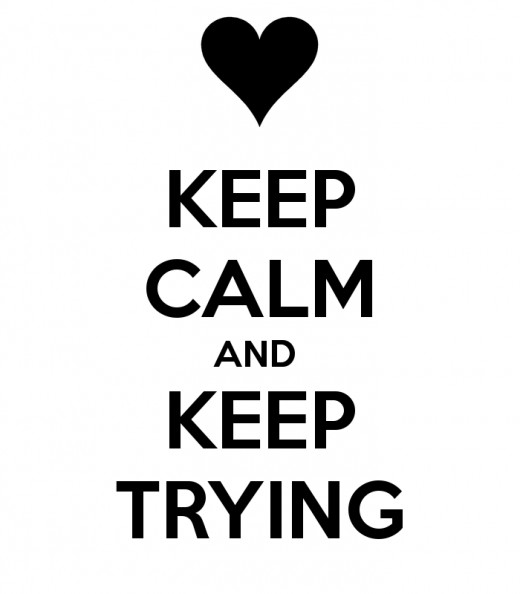
What if it Doesn't Work for Me?
It's quite possible it won't.
Here you have the crux of the matter when it comes to psychology. The problem with declaring just about anything in the field is that we have so little solid knowledge of how the human brain works. One of the few elements that we DO have solid knowledge about is that brain chemicals can differ from person-to-person. Another element is that not all brains react to the same stimuli in the same way. It's almost impossible to nail down any science when the study subjects have an endless list of varying factors.
I am no scientist, just an observer but I have noticed a few specifics over the last 30 years as far as who may and may not take to lucid dreaming quicker than others.
-Deep sleepers
If you've ever been told you 'sleep like the dead' or a 'tornado wouldn't wake you' you might have a good chance at a higher frequency of possible lucid dreams. Light sleepers seem to have a more difficult time reaching the state between deep sleep and slight consciousness that lucid dreaming requires. Light sleepers may have some luck with this if they practice some very basic meditation exercises along with their brain exercise requirements.
-Unusual sleep brain waves
While most people probably won't find out this information the scientific way, through sleep disturbed EEG research, there are a few commonalities of those who are likely to have unusual brain waves during resting or REM states. Those who are able to lucid dream without training, or those who can pick up the skill in short periods of time, are also likely to have faster brainwave frequencies than average.
For me, I mostly subscribe to the theta brain wave theory. Take the time to read over what biochemist and psychologist Eve Frances Lorgen wrote back in 1998 on the biochemical and neurophysiological processes that may be involved in lucid dreams.. Even though I do subscribe to this type of theory on lucid dreaming abilities, I also have no idea what my having more theta waves than delta waves during lucid dreaming sessions means or what about my chemical makeup made learning this ability relatively easy for me.
If you do not have instant success, it certainly doesn't mean you are incapable of learning this. It just means that your chemical makeup differs from most other humans on earth and you may need to find a more workable process tailored to your needs, you may have more success with other methods such as binaural beats. If you are having difficulty, please feel free to share your experience in the guestbook below and perhaps other readers or myself can suggest other options.






